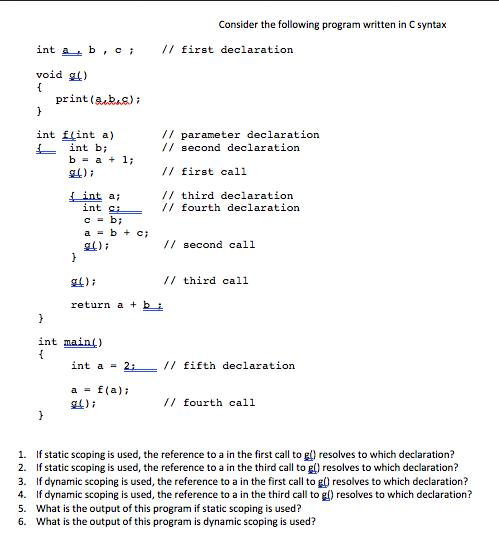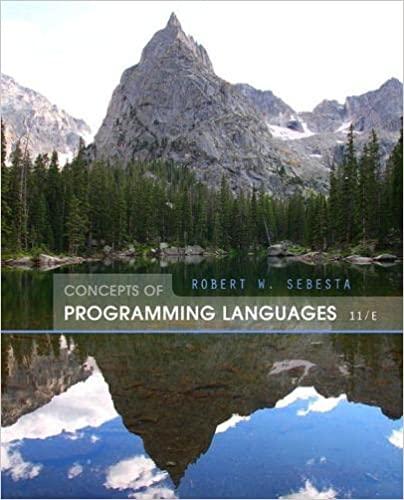Answered step by step
Verified Expert Solution
Question
1 Approved Answer
int a b, c; void g) { } int fint a) int b; b= a + 1; (); print (); } } int a;

int a b, c; void g) { } int fint a) int b; b= a + 1; (); print (); } } int a; int si c = b; a = b + c; (); } int main() { Consider the following program written in C syntax // first declaration // parameter declaration. // second declaration. // first call // third declaration // fourth declaration // second call return a bi // third call int a 2; // fifth declaration a = f(a); g_(); // fourth call 1. If static scoping is used, the reference to a in the first call to gi) resolves to which declaration? 2. If static scoping is used, the reference to a in the third call to g() resolves to which declaration? 3. If dynamic scoping is used, the reference to a in the first call to g) resolves to which declaration? 4. If dynamic scoping is used, the reference to a in the third call to g) resolves to which declaration? 5. What is the output of this program if static scoping is used? 6. What is the output of this program is dynamic scoping is used?
Step by Step Solution
There are 3 Steps involved in it
Step: 1

Get Instant Access to Expert-Tailored Solutions
See step-by-step solutions with expert insights and AI powered tools for academic success
Step: 2

Step: 3

Ace Your Homework with AI
Get the answers you need in no time with our AI-driven, step-by-step assistance
Get Started


